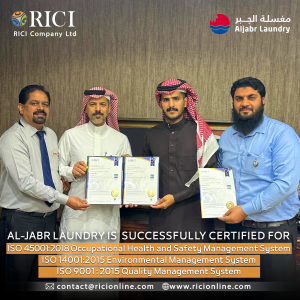The Key to Good Management
“Coming together is a beginning. Keeping together is progress.
Working together is success.” ~ Henry Ford
How often do you hear people asking: “What is good management?”
You can tell what they’re thinking. They wonder if becoming a good manager – of a sporting team, a business, a factory – needs training, inspiration or just an innate ability to combine foresight with good human resource management.
The answer? All of the above.
Without proper education and training, even the most gifted individual cannot hope to run any entity properly. And that spark of inspiration only occurs when one understands the demands and processes of any system they are engaged in; put another way, focusing on the basics leads to that pivotal light-bulb moment. Finally, of course, some people are just fortunate in that, along with the education and training they have received and the inspirational style of their leadership, they are able to understand and equate the strengths and weaknesses of the human resource at hand with the tasks they know will be accomplished successfully by each separate individual.
We see this happening around us all the time. We only need to pay attention to be able to understand how it works.
You see, management is defined, simply, as “The process of dealing with, or controlling, things or people”.
“I can do that,” most people think. But they don’t realize that management – good, results-oriented management – is not just the ability to conduct a business or organization well, it is, by itself, a veritable art form.
That, of course, is the first stage. That is the stage where a process is started, a system is put in play and the evolution of that process and system is aided along by that essential human factor: the good manager and a well-staffed management team.
These are age-old principles, handed down to us over the centuries by those who paved the way for the world to exist as it does today. But over the past century or so, as businesses spread their wings across the globe, and, especially now, as the world truly has become the “global village” that Marshal McLuhan, the Canadian philosopher, envisioned in the 1960s, we see transnational commerce, migration and culture as proof of our global coexistence.
So, what has that meant for businesses, processes and systems, which require time to evolve and mature? And how – now that we are, seemingly inextricably, linked across borders and time-zones because of increasingly dominant media technologies – have we managed to ensure that business systems and processes are managed to the same standard across the globe?
The answer to both these questions arrived in 1946, when 65 delegates from 25 countries met at the Institute of Civil Engineers in London to discuss the future of International Standardization. In 1947, the International Organization for Standardization (ISO – the acronym taken from the Greek word “Isos”, meaning “equal”, allows it to be used across languages) was born. ISO is an independent, non-governmental international organization with a membership, now, of 165 national standards bodies.
As described on the organization’s website, ISO “… through its members, … brings together experts to share knowledge and develop voluntary, consensus-based, market-relevant International Standards that support innovation and provide solutions to global challenges.”
Why are the ISO – and its affiliates across the world – so important for management professionals and techniques, spread across diverse countries and cultures?
Because they provide uniformity to the purposes of business and management. By setting standards that must be emulated by all companies, regardless of their geographical location – and by initiating training courses that benefit managers at all levels and tiers within organizations subscribed to these standards – the ISO, as it states, does enable global challenges and targets to be met.
Finally, and, perhaps, most crucially, here is a thought for you, the reader to ponder. If you are a part of, or lead, a management team, how good a manager are you? Do you rely on inspiration to lead you? Is it your training? Or, is it just your ability to get the best out of your team? Could it, possibly, be all of the above?




